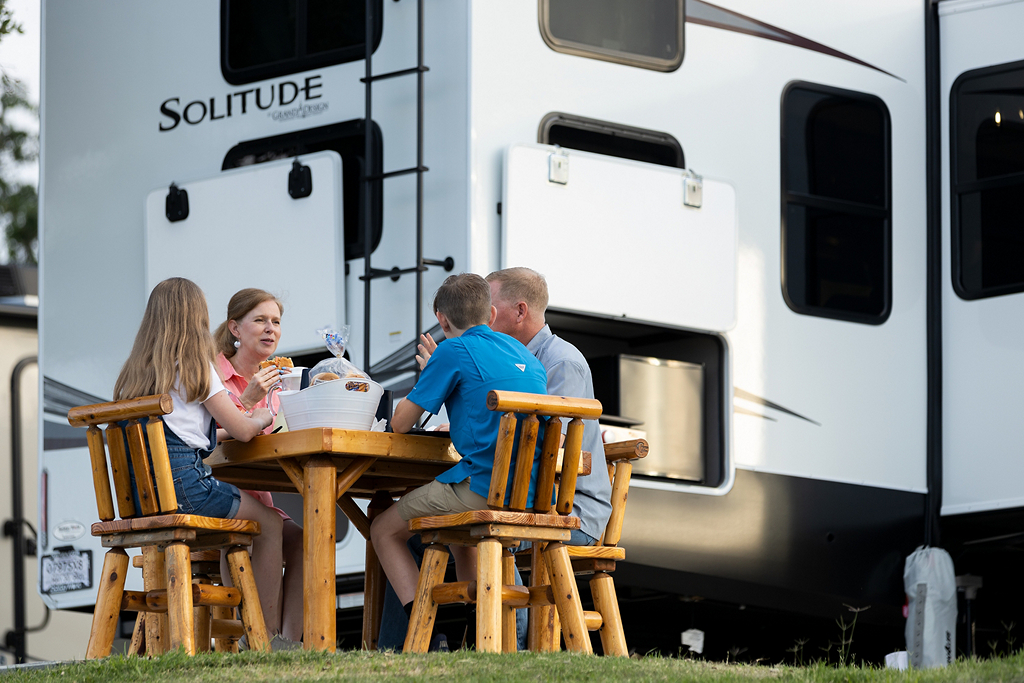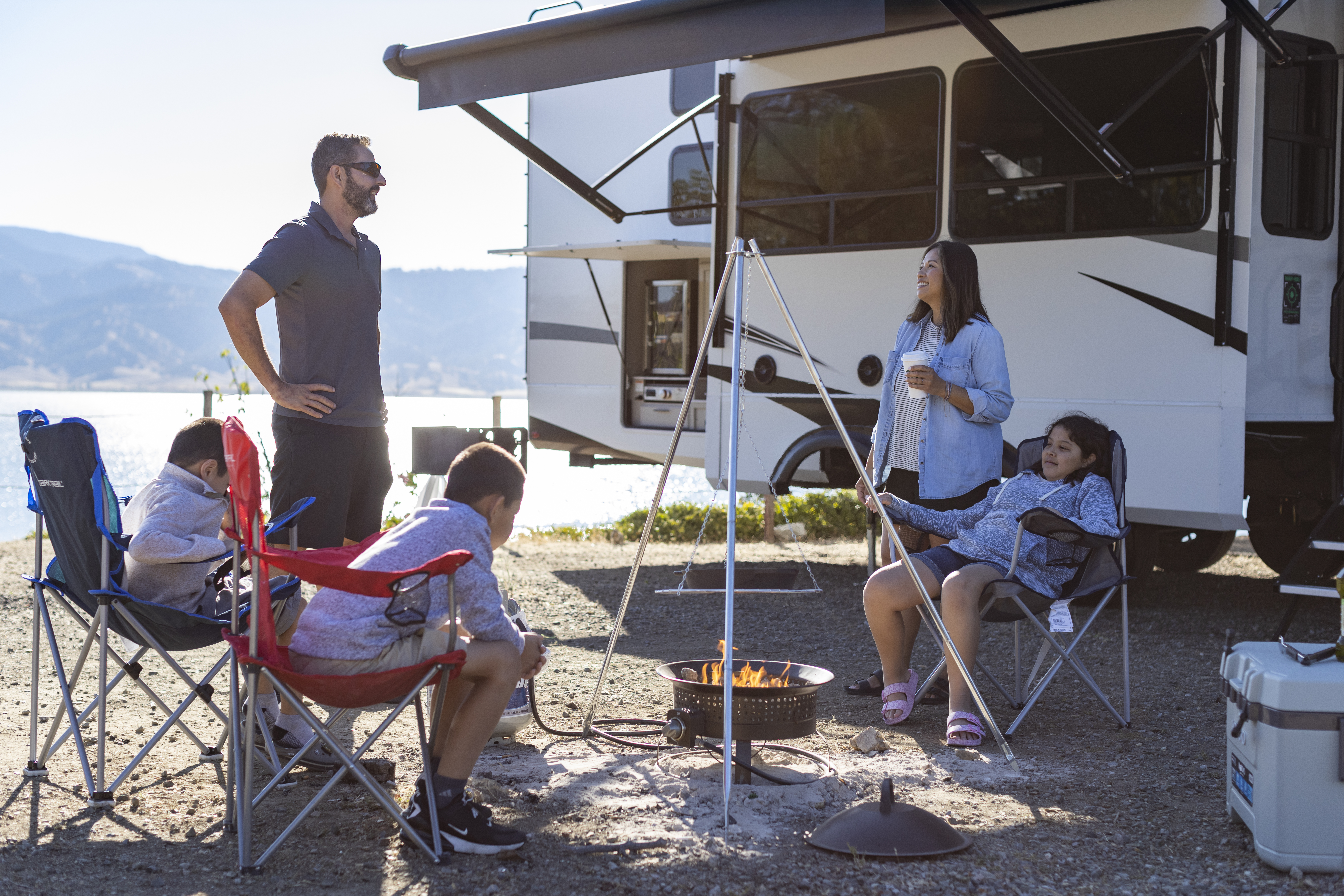LIVE
Are RV Parks Safe from Crime? Tips for Weekenders and Full-time RVers

All things considered, RV campgrounds are generally safe. In fact, RV theft is quite rare, and most RV thefts don’t even occur at campgrounds. This may be because campers usually look out for other campers.
Depending on where you are, you can usually relax knowing that the campground takes crime very seriously. That said, anyone can be a victim of a crime at any time, no matter where they are. So, it’s best to take these precautions to protect yourself and your property.
Be selective with campsites
To get a better understanding of the risk of crime where you plan to travel, there are several things to consider. First, choose a well-lit campground that conducts nightly patrols. The presence of light and the likelihood of someone always watching significantly reduces the risk of crime.
Next, you should choose a site for your RV that is within earshot of civilization - or at least other campers. This serves two purposes: it keeps friendly eyes on your property while offering the help of campers nearby should anything bad happen.
Lastly, it is recommended that RVers camp farther away from urban areas, where more crime is likely to happen. While it is true that RV theft is rare, it is more likely to occur when you are parked in a Wal-Mart parking lot than beneath a canopy of trees in the boonies.
Don’t act like tourists
This is a good rule of thumb for any traveler. The fact is that tourists are more likely to be victims of crime than locals. This is because their unfamiliarity with the area leaves them distracted, disoriented, and vulnerable. Predators know this and seek out this trait in their prey.
To protect yourself, you should refrain from looking lost and flashing around lots of money and expensive valuables. This indicates to thieves that you are an easy, profitable target. Instead, project as much confidence as you can when you are walking around and keep your wallet and other valuables hidden.
Lock up before you leave
While we did say that other campers are pretty trustworthy, sometimes there’s a rotten apple in the bunch, or sometimes there’s someone that doesn’t belong there - someone looking to make trouble.
Just in case, when you leave your campsite unattended for any reason, lock up and reinforce your doors and windows. This will make your RV more impervious to a break-in. Make sure blinds or curtains are drawn so no one scout your RV as a likely target, and put all of the outdoor stuff you don’t want stolen inside the RV or tow vehicle.
Just because you respect other people’s property doesn’t mean that everyone else does.
Invest in an alarm system
If you are living in an RV full-time or simply camp frequently, we would recommend that you invest in some kind of security system, including alarms, cameras, and motion detecting lights.
While this may seem like a lot of money and effort to install, you can easily put in a system that works, even on a budget. Just a handful of these $12 alarms on Amazon can go a long way in protecting you and your RV. They are magnetically triggered alarms that can be disarmed (or engaged) with a remote, and have a simple peel and stick installation. Best of all, these little guys sound off a 105 decibel (very loud!) alarm to deter thieves.
There are also numerous security camera systems for RVs that you can find on Amazon in the $200-$400 range. Some RVers might think that cameras are overkill, but there’s no denying how helpful they are during a crisis. If it gives you peace of mind, it is worth the cost.
Keep a safe in your RV
An extra measure of protection you can take while camping is to keep your most precious belongings in a vault or safe inside of your RV. Some high-end RVs come with one installed, but it is not common. So, if you are like most people, you’ll need to outfit one yourself. Make sure your safe is secured (bolted) to the RV itself so no one can simply walk off with it.
You can also find safes for reasonable prices on Amazon, so there’s no reason not to get one (unless you are severely limited on space). For example, this best seller from Amazon Basics begins as low as $59 and comes in a variety of sizes. Find a good space for a safe in your RV and take measurements to know which one is best for you.
Be wary of suspicious people
It seems a bit harsh to say you should be wary of all people, but it’s honestly not a bad defense. While it is fine to be friendly with neighboring campers, don’t divulge any information that could put you in harm’s way.
For example, if you are camping alone, don’t make it obvious, and certainly do not tell other people - particularly if you are a woman. You never know someone else’s intentions, and this seemingly innocuous bit of information substantially increases your chances of being a crime victim.
Be careful what you say to other people while camping. Don’t say things that make you appear vulnerable. And if you see someone blatantly suspicious in the campground, report it immediately.
Bring your dog
Pet owners will be happy to hear this tip (as if they need another good reason to bring their dogs camping). If you own a dog, you are much less likely to be a victim of crime in a campsite, especially if it’s a big dog. (Unfortunately, your pug and teacup pomeranian can’t offer much defense, though they may be able to save you a few bucks on that alarm system.)
Criminals are looking for easy targets, and simply put, a large dog is not an easy target. Their size alone is typically sufficient to deter any would-be criminals. Beyond that, big dogs have big barks which are typically enough to make a criminal pick another target - even if they haven’t seen the dog. Many dogs will also defend their space and their owners should someone take the less intelligent path and ignore the obvious warning.
Maintain your RV
Lastly, RVs with faulty parts are more likely to be broken into than those in perfect condition. With that in mind, before you go camping, find someone certified to service your Grand Design RV.
Always keep in mind that criminals are looking for easy targets. What we have discussed are some easy steps you can take to protect yourself and your campsite. But as you’re going about your travels, you should be aware of the little and big things that can make you vulnerable.









